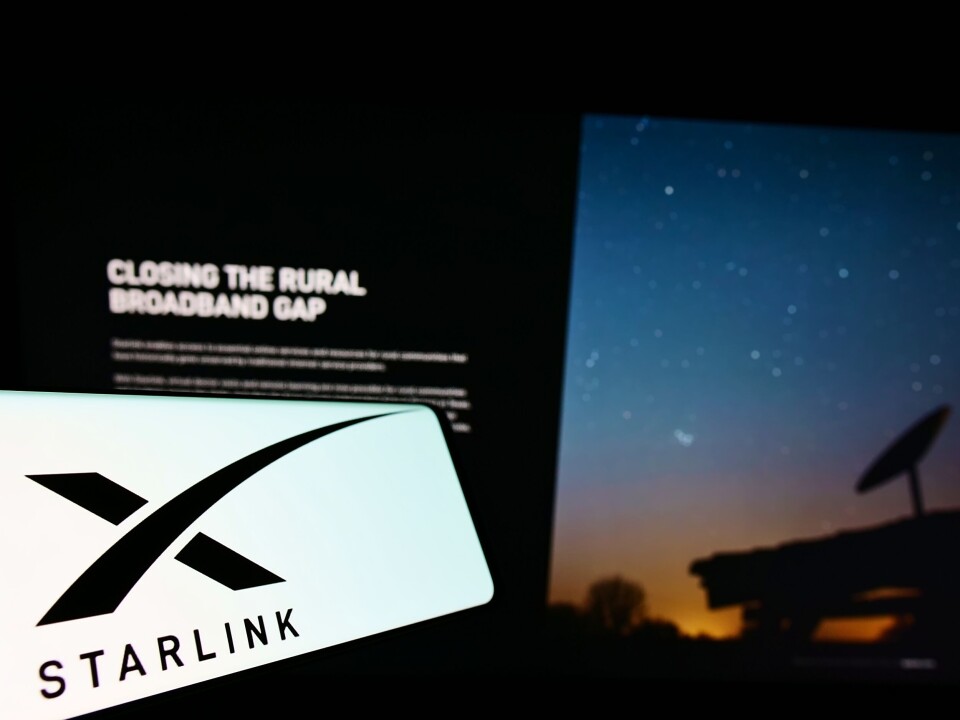-
Photos: Paris exhibition explores what people do alone at home
Behind the curtain: L’Intime Expo takes a fascinating look at people's private lives
-
Photo: what is the strange ‘hair ice’ phenomenon seen in France recently?
Extremely rare formation is occurring in eastern woodlands
-
Macron confirms what he wants to say to Trump when he visits US next week
Ukraine, EU and US relations and geopolitical situation are unsurprisingly key topics
Elon Musk’s Starlink internet service loses authorisation in France
The supreme administrative court has banned the billionaire’s satellite service frequencies due to environmental concerns

Starlink, billionaire Elon Musk’s internet-by-satellite service, has lost its frequency authorisation in France due to environmental concerns, effectively banning its use in the country.
Environmental associations raised the issues via a successful case brought before the supreme administrative court, le Conseil d’Etat, and say that more investigation into the service’s economic and environmental implications is needed.
In a ruling on April 5, the court cancelled a decision by France’s electronic communications authority Arcep (taken on February 9, 2021) to allow Starlink to operate on two frequency bands to link its satellites with users in France.
The Conseil d’Etat criticised Arcep for not having had a public consultation before giving the green light to the service, despite saying that the service “risks having a significant impact on the market of high-speed internet service providers, and of affecting users”.
The new decision has found in favour of arguments put forward by two environmental associations: Priartem and Agir pour l’Environnement.
According to the associations’ lawyer, François Lafforgue, the decision forbids Starlink from using these frequencies and therefore effectively bans the service in France.
Stephen Kerckhove, from Agir pour l'Environnement, welcomed the decision as it would "put things back on track".
He said: “Le Conseil d’Etat has sent a signal to those who would confuse speed with haste. We now call on Arcep to…carry out a proper economic and environmental assessment [of the Starlink project].”
Critics claim that the technology required to operate Starlink could pose a threat to people and animals due to electromagnetic radiation.
Starlink has already received widespread criticism for the 12,000 mini-satellites that it plans to send into orbit at a low altitude (550 kilometres), which critics have said will disturb stargazers and clutter the night sky.
Read more: Night sky lights over France are SpaceX satellites
In March this year, a village in Normandy successfully mounted opposition plans against the installation of a Starlink satellite base station, which had planned to build nine antennas 150m away from the nearest house.
Read more: SpaceX’s ‘secret’ planning go-ahead shocks French village
In its defence, Starlink has said that it aims to provide high-speed internet to residents in areas that are otherwise poorly served by telecom operators' fixed and mobile networks.
Starlink has not yet publicly commented on the new ruling in France.
Starlink first became available in France in May 2021. It enables high-speed internet access, similar to fibre-optic broadband, in areas that would otherwise not have any connection.
However, fees are high, at €99 a month, plus extra upfront charges of €499 for equipment, and shipping fees of €69.
The service had hoped to attract one million customers in France within 12 months.
Related articles
Night sky lights over France are SpaceX satellites
High-speed Starlink satellite internet access now available in France
SpaceX’s ‘secret’ planning go-ahead shocks French village






















